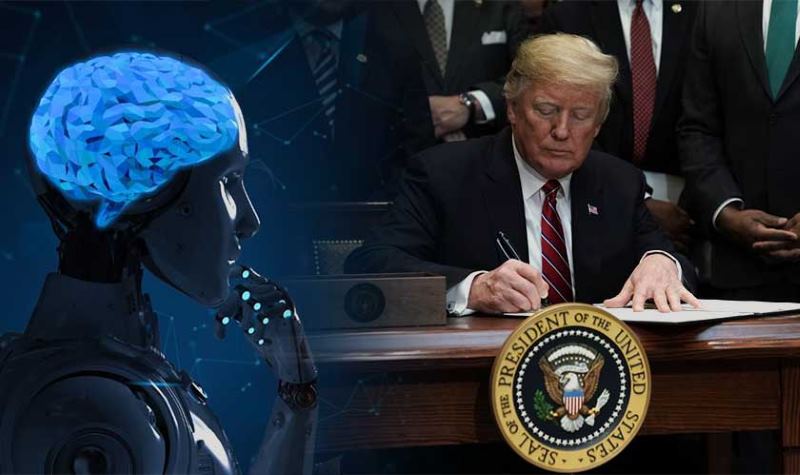Technology
Trump’s Focus on AI Signals Shift in U.S. Policy
What to expect from Trump’s focus on AI Over the past two years, the Biden administration took deliberate steps to ensure that the United States maintained its leadership over China in AI. Aiming to balance innovation with risk mitigation, the White House introduced measures aimed at addressing the potential dangers of technology and promoting growth. However, in his first 24 hours back in Washington, Donald Trump offered a stark contrast to Biden’s approach, emphasizing unrestrained innovation.
Trump’s Contrasting Vision
Trump reversed Biden’s executive order on AI, halting essential safety and transparency measures. This decision marks a significant shift. It signals a move towards a less regulated AI landscape. The change prioritizes innovation over stringent oversight. Critics argue this could lead to increased risks and fewer safeguards.
SoftBank and Major Tech Investment
Trump is set to unveil a $100 billion AI investment initiative on Tuesday, supported by companies like SoftBank and Oracle. The initiative will focus on expanding physical AI infrastructure, particularly AI data centers. This plan prioritizes rapid expansion while neglecting environmental concerns. Trump’s stance contrasts with Europe’s stricter regulations on AI and sustainability.

Dell Technologies Rebrands PCs to Simplify Consumer Choices
Dell Technologies Inc. has announced a major rebranding of its personal computers, moving away from legacy names like “XPS” and “Inspiron.”
Musk’s Influence on AI Policy
Trump’s relaxed stance on AI may largely depend on the influence of Elon Musk, a prominent AI investor. Musk, though cautious about AI’s existential risks, supports Trump’s vision of advancing AI technology. Musk advocates for reducing regulatory barriers to encourage investment in AI development. This alignment could shape the future of AI policy under Trump’s administration.
Global AI Rivalry and European Tensions
The EU has implemented strict regulations on AI privacy and safety, while Trump’s administration favors collaborating with tech figures. Trump’s team works with Musk and David Sacks to streamline AI policy, diverging from EU efforts. This shift could lead to a global clash over AI regulations. The growing dominance of China in AI further complicates global regulatory discussions.
Investment in Data Centers and Clean Energy
Trump’s administration may relax clean energy requirements for AI infrastructure, diverging from Biden’s environmentally conscious data center focus. This shift could allow companies like Microsoft and Google to scale AI operations faster. However, this may come at the expense of climate commitments. Experts are concerned about the potential long-term environmental impact of this change.
Competing with China’s AI Advancements
AI advancements in China prompt U.S. experts like Alexandr Wang to urge Trump for decisive action to maintain competitiveness. Despite risks, the Trump administration prioritizes short-term gains in the AI race with China. Experts emphasize the importance of staying ahead in technological developments. The strategy focuses on immediate success rather than long-term stability.
Long-Term Risks of a Deregulated Approach
Trump’s policy aims for immediate technological dominance, but experts caution about long-term risks. Critics, including Frank Pasquale, warn that removing safety regulations could result in dangerous AI products. They argue companies would set their own safety standards without regulatory oversight. This lack of oversight may lead to unforeseen consequences.


